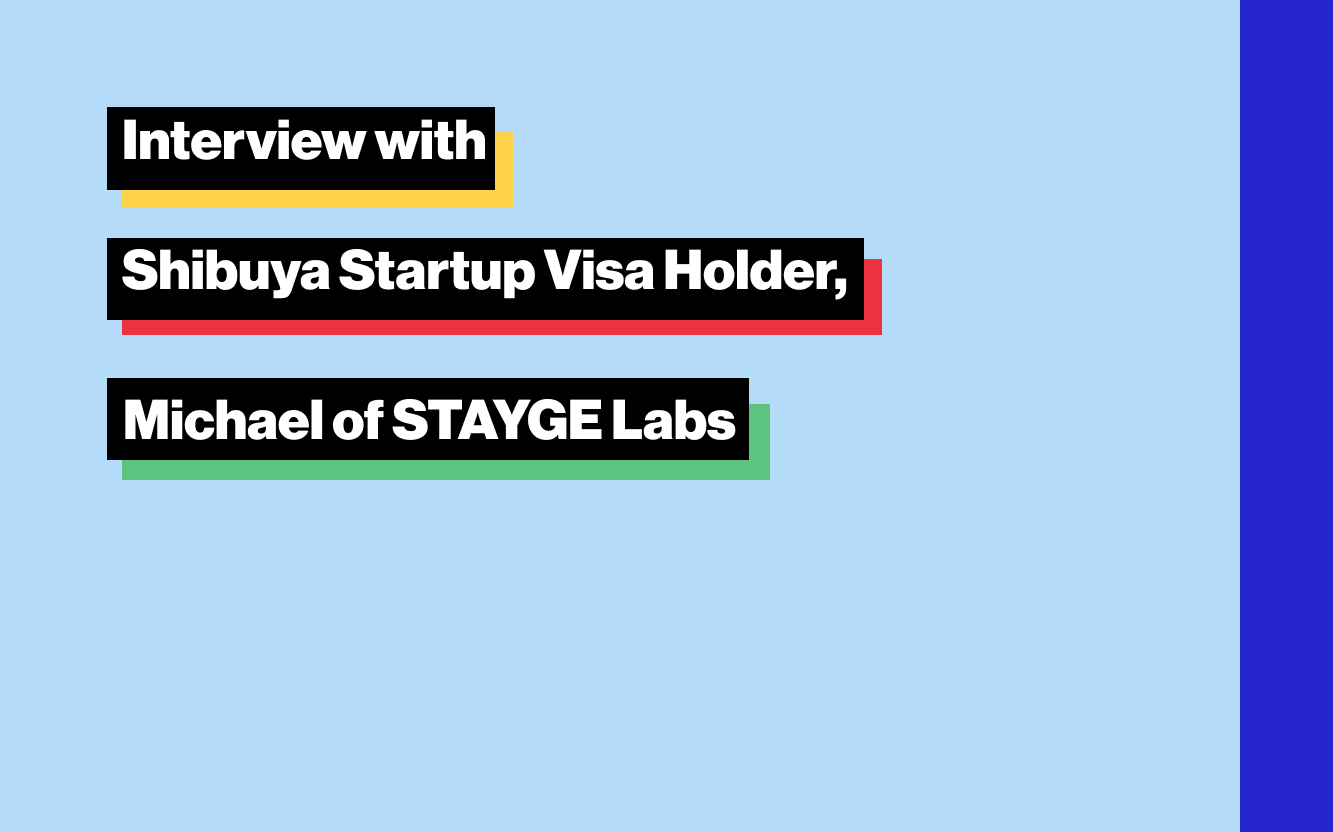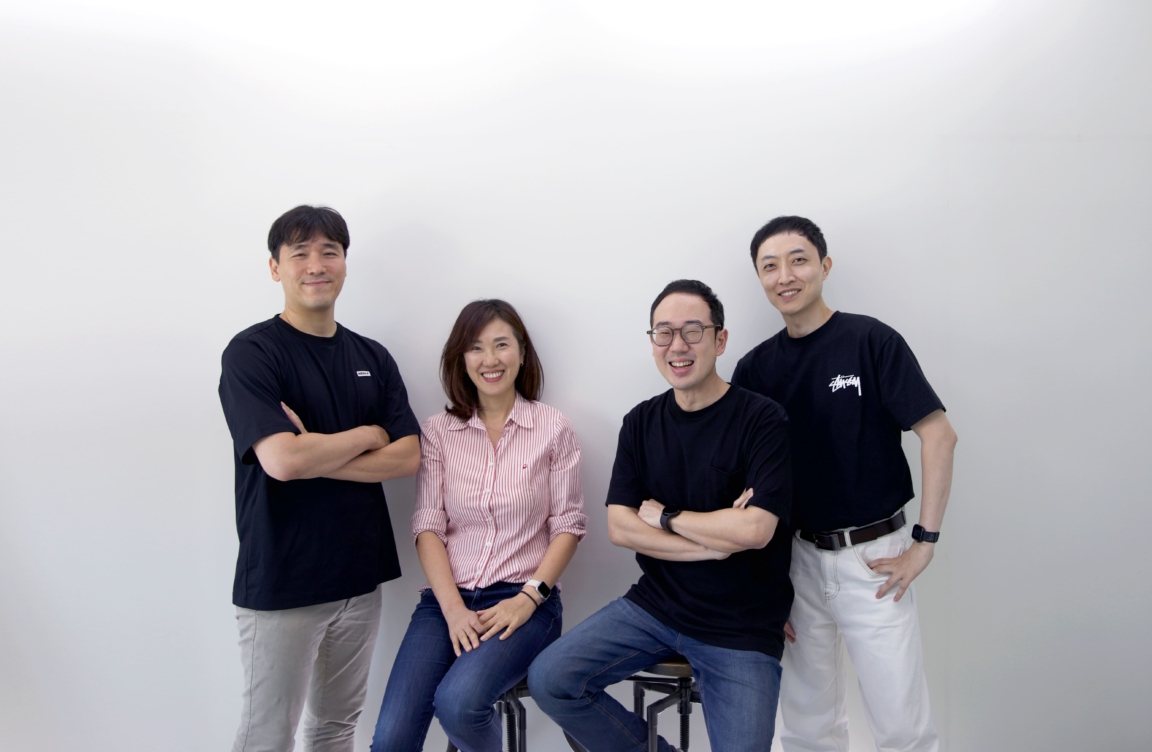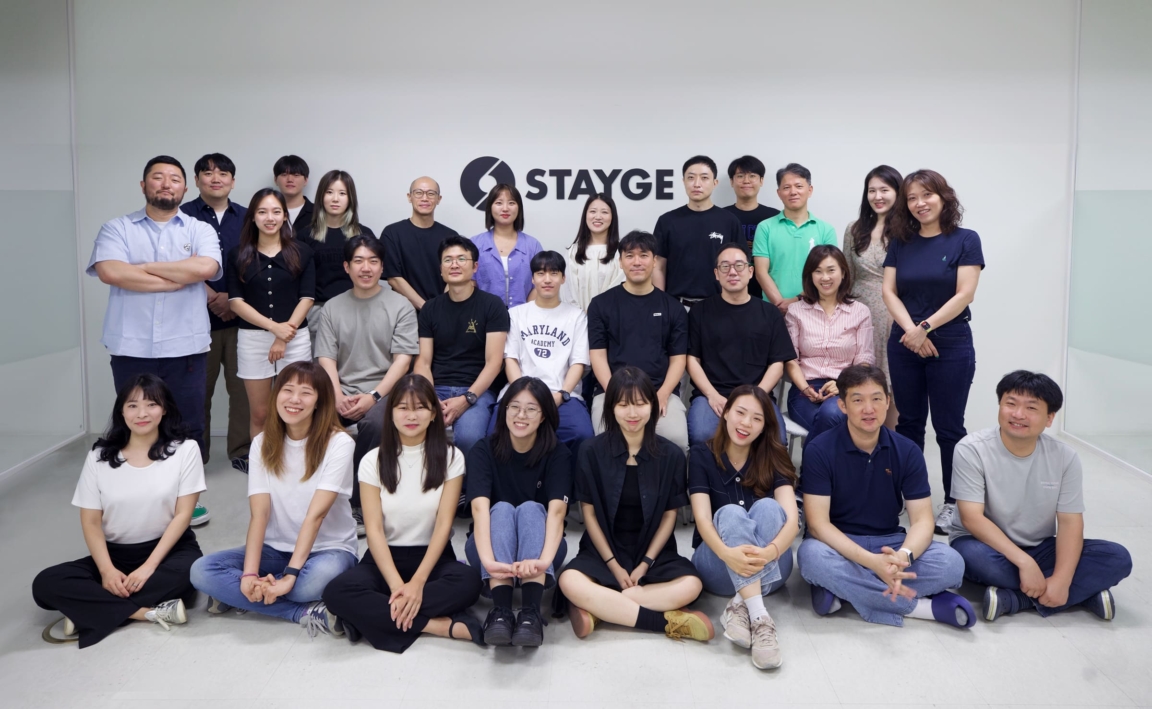


We interviewed Michael Baeg, CEO of STAYGE Labs, which is developing a platform to connect artists and fans. He shared insights about his business journey and his vision for the future.

(Photo: STAYGE Labs)
Please introduce yourself and your business!
Hello, I’m Michael Baeg, the CEO of STAYGE Labs. At STAYGE Labs, we develop and operate a platform that connects artists and fans. Our original mission is to use technology to cultivate the vibrant fan culture at the center of the K-POP industry and bridge the gap between artists and fans worldwide.
Our main services include the live communication fandom platform LiNC and the digital photo card service tin. Both cater to the unique needs of K-POP fans.
LiNC serves as a platform for fans and artists to connect through private messages, interactive live streaming, and one-on-one video calls. Both services have garnered significant attention, with LiNC officially launched in September 2024 after a successful one-year beta period, and tin achieving over 700,000 downloads globally.
Our business goes beyond B2C; we are also expanding into B2B partnerships. Notably, we are collaborating with CJ ENM, a major entertainment company in Korea, to operate Mnet Plus‘s Global K-Pop Fandom Platform. This allows us to manage a large-scale platform serving millions of users worldwide, offering entertainment-focused services.
While we have primarily focused on the K-POP industry thus far, we have decided to expand our business to include J-POP artists, marking our entry into the Japanese market.
What made you start your business, and how has the journey been so far?
During university, I majored in computer science, while my younger brother — who was in high school at the time — pursued music. I believed in his musical and entertainment talents and began to think about how I could support his music endeavors using my skills and knowledge as the internet was gaining popularity. I built a website to promote my brother and explored ways to enhance his presence as an artist through social media as it expanded, which we operated together.
Additionally, as a side project, I collaborated with about seven other musicians to create content with fans worldwide using various platforms and Creative Commons licenses, and to experiment with new music distribution and promotion methods.
My career has always straddled the line between IT and entertainment, likely due to the mutual influence between my brother and I. I began my career as a software engineer in the gaming industry, working at the intersection of art and technology. I then transitioned to the broadcasting industry, planning IT-driven new businesses utilizing content, and then unexpectedly entered into venture capital, where I discovered and supported startups in the entertainment technology field.
Through interactions with my brother and other musicians, I gained a deep understanding of the structure of the entertainment industry and, various stakeholders’ perspectives, and from my experiences in IT and VC I understood the flow of capital.
This was the impetus for my brother and me to co-found STAYGE Labs, with the goal of building a sustainable platform ecosystem for artists and fans centered around a fan community platform. However, in hindsight, our business may have been a bit ahead of its time. When we established the company in 2016, the concept of a “fandom platform” did not exist in the K-POP industry.
We sought to find business opportunities by uniquely connecting the entertainment and IT industries, but merging these two industries, which had completely different business models, approaches, and mindsets, proved to be more challenging than expected.
During the COVID-19 pandemic, we suffered a crisis that became an opportunity. After a year of preparation, we launched a global commerce service aimed at overseas fans; but since the pandemic disrupted logistics it made offline-dependent business difficult for a time.
In response, we launched an online concert platform to support artists and venues unable to hold offline events. This initiative led to partnerships with major media companies in Korea and ultimately resulted in investment from them.
Since then, our organization has grown significantly and continues to this day. Recently, we have resumed our platform business, alongside open innovation projects with Korean media companies. This includes our LiNC and tin services, aimed at entering the Japanese market.
Why did you choose Japan?
The Japanese market is extremely important to us. Even before establishing our Japanese subsidiary we had been operating on a global scale, but approximately 90% of our B2C revenue comes from Japan. However, while this data demonstrates the potential of the Japanese market, it does not mean that doing business here is easy. Among the 170+ countries where we operate, Japan is the market that demands the highest level of service localization. In other words, we see Japan as a market with both high potential and high difficulty.
To effectively navigate this market, we chose Japan as the location for our first local subsidiary. We are currently preparing to hire local talent, which we believe will enable us to offer products and services that are even more tailored to the Japanese market.

(Photo: STAYGE Labs)
What motivated you to apply for the SSS visa?
I learned about the SSS visa through D.CAMP, a Korean startup support organization. When I began preparing to enter the Japanese market in early 2023, D.CAMP was introducing business opportunities in Japan to Korean startups. When I inquired about support for entering the Japanese market, they introduced me to several companies and organizations, including SSS.
After a few online meetings, I visited Japan in April 2023 and had the opportunity to meet the SSS team in person at their office. Considering that Shibuya is the center of the Japanese entertainment industry, the SSS team showed a deep understanding and interest in our business. Additionally, I felt that being based in Shibuya with SSS’s support would be an ideal strategy for entering the Japanese market, so I naturally decided to proceed with the visa application through SSS.
What benefits have you experienced as a member of the SSS community?
We completed the establishment of our Japanese subsidiary about two months ago and have just finished opening a corporate bank account. So far, SSS has provided invaluable assistance in the establishment process and bank account setup.
One example is that, like many entrepreneurs from other countries, Korean startup founders entering the Japanese market often overlook the selection of a primary bank. In Korea, it is relatively easy to open a corporate bank account, but in Japan, the situation is quite different. When partnering with Japanese companies, it is common to check the bank with which they primarily conduct transactions and assess the potential partner’s creditworthiness. As a result, many Japanese companies list their main banks on their websites. However, many Korean entrepreneurs, unaware of this, often choose the bank that offers the easiest account setup when establishing a Japanese corporation.
Thanks to SSS, I quickly understood the subtle differences in the Japanese business environment. With their support, I was able to open an account with Mizuho Bank, one of Japan’s three megabanks. SSS assisted throughout the entire account opening process and accompanied me to the bank. As a foreigner, it would have been nearly impossible for me to navigate this process smoothly on my own.
What are your future business plans?
First, we plan to localize and market our LiNC service to more actively connect K-pop artists with their Japanese fans. Many K-Pop artists view the Japanese market as extremely important. We are planning co-marketing initiatives and collaborations with these artists, who have a strong interest in Japan, to effectively promote our service in the market.
Our next step is to connect Japanese artists with fans around the world. At first, we consulted with friends and acquaintances in the entertainment industry in the hope that we could support Japanese artists through our platform to interact with their fans and organize events to boost their sales. However, they were not very interested, as Japan already has its own business model and artists use existing fan communities and social media. However, I reconsidered the idea of connecting to global fans then. Japanese artists are already connected to their fans domestically, but they are still seeking ways to attract and monetize a global fan base. That is why we plan to develop our services with a focus on global development, which is one of our strengths.
In addition, when talking to Japanese entertainment professionals, many were interested in working with Korean companies to expand globally. Rather than simply aiming for the Korean market, there is a strong desire to go global with Korea: just as K-pop is naturally spreading globally, there is a growing awareness that Japanese entertainment wants to go global as well.
Our major goal for the future is not only to generate revenue in Japan but also to expand the reach of Japanese artists and develop new revenue streams, ultimately contributing to the growth of the Japanese entertainment industry and ecosystem!
Thank you Michael for sharing your business and experience in Japan!
If you are interested in the startup ecosystem and startup visas, please don’t hesitate to contact us, and follow us on social media to keep up-to-date on upcoming events!
More information on Shibuya’s Startup Visa program: https://shibuya-startup-support.jp/sws/
Shibuya Startup Support’s social media accounts:
LinkedIn:https://www.linkedin.com/company/shibuya-startup-support/
Facebook:https://www.facebook.com/shibuya.startup.support
X (formerly Twitter):https://twitter.com/ShibuyaStartup